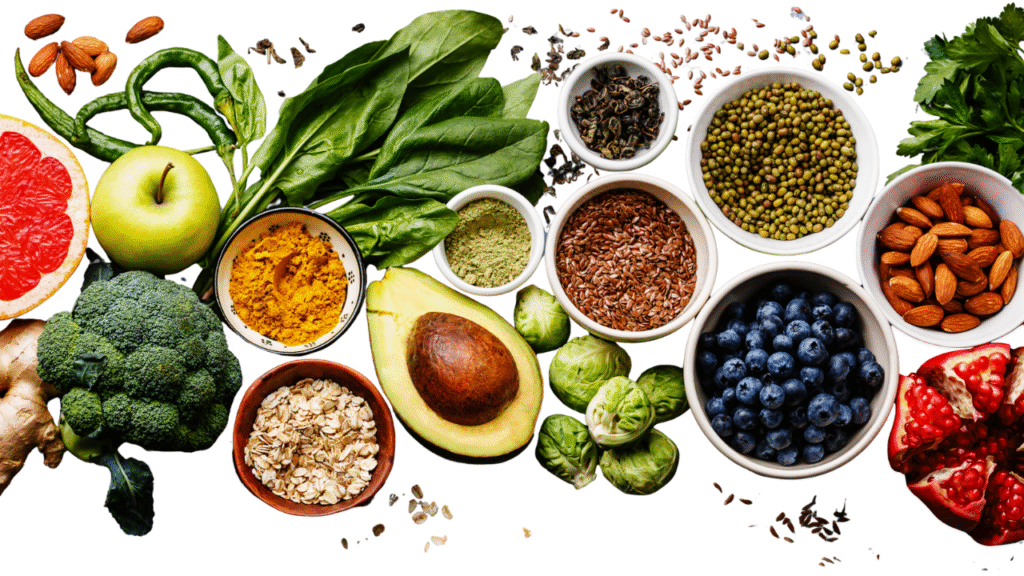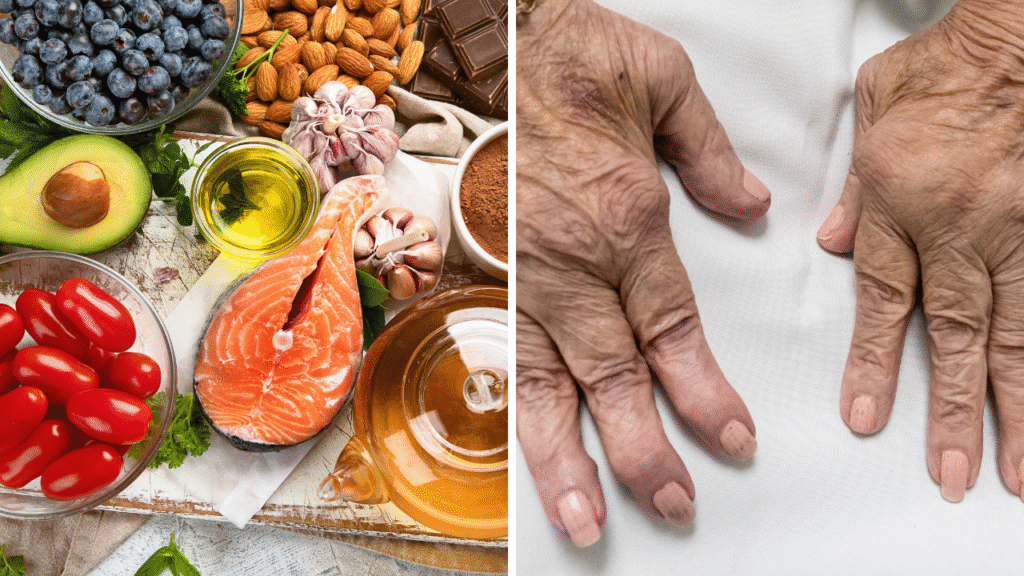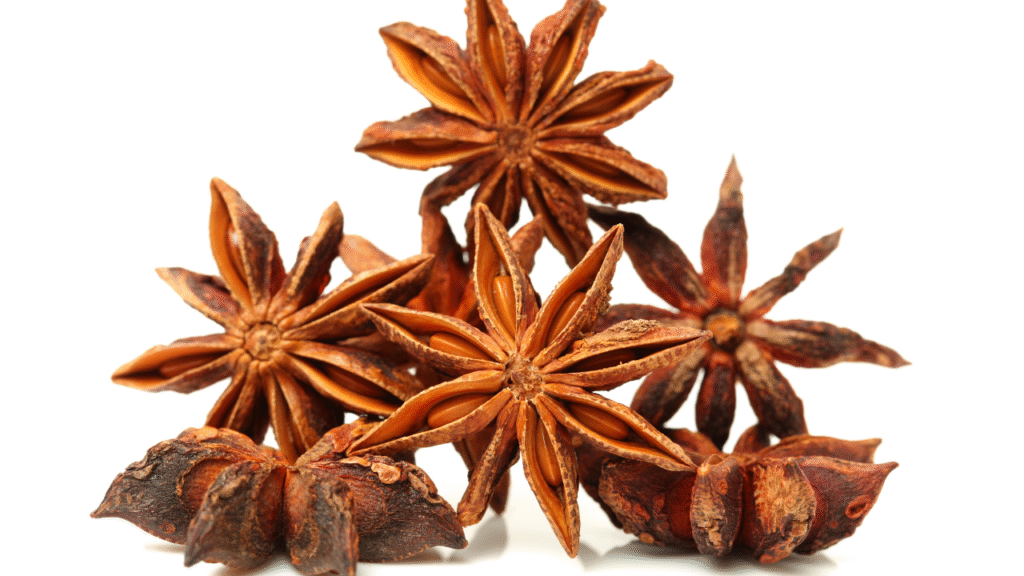
According to research, including berries and turmeric in your diet can improve your brain function and memory, promoting overall mental and physical health and improving your mental and emotional well-being.
Superfoods are nutrient-dense foods high in antioxidants, minerals, vitamins, fiber, protein, and healthy fats that promote health by improving immune function, lowering the risk of chronic disease, and promoting overall well-being.
Memory and brain health are critical for practical thinking, learning, and knowledge retention. Because poor brain health can result in cognitive decline and memory loss, prioritizing brain health and adding superfoods into our diet is critical.
Superfoods are essential for brain health because they reduce inflammation, protect against oxidative stress, promote new cell growth, and improve cognitive function and memory.
Here are 12 superfoods to boost brain health and memory
1. Fatty fish are the ultimate brain food.
Tuna, sardines, salmon, and mackerel are high in omega-3 fatty acids necessary for brain and nerve cell growth. Fatty fish consumption has been shown to boost cognitive capacities, delay age-related cognitive decline, and prevent dementia. According to research, increasing omega-3 intake in older persons lessens the incidence of dementia. Furthermore, middle-aged adults who consume omega-3-rich diets have more significant hippocampus volumes, essential for memory and learning, making them better comprehend complicated concepts.
2. Turmeric
Turmeric, a fundamental element in curry powder, has been shown to have several neurological advantages. Its key ingredient, curcumin, has been found to pass the blood-brain barrier, allowing it to reach the brain and help cells there. It is a powerful antioxidant and anti-inflammatory chemical related to memory enhancement, depression relief, mood enhancement, and the formation of new brain cells.
Curcumin also increases brain-derived neurotrophic factor, a growth hormone that aids in the formation of brain cells. More research, however, is required to establish its potential benefits. Most studies employ highly concentrated curcumin supplements, which are significantly higher in concentration than most individuals consume when using turmeric as a spice. As a result, under the supervision of a doctor, turmeric supplementation may be required to achieve the effects reported in these trials.
3. Berries improve brain function and memory.
Berries, such as strawberries, raspberries, and blueberries, are high in flavonoids, which have been shown to boost memory and prevent cognitive decline. According to King’s College London researchers, a handful of wild blueberries daily can improve brain function. Individuals who took wild blueberry powder over 12 weeks had better memory and attention task accuracy. This shows that eating berries can be a quick and easy strategy to boost brain health.
4. Broccoli
Broccoli contains many plant components, including antioxidants, and is strong in vitamin K, supplying more than 100% of the RDA. Vitamin K is required to form sphingolipids, which are densely packed inside brain cells. According to research, higher vitamin K intake improves memory and cognitive state in older persons. Broccoli also includes anti-inflammatory and antioxidant chemicals, which may help to protect the brain from injury.
5. Dark Chocolate
Flavonoids, caffeine, and antioxidants are all found in dark chocolate and cocoa powder. Dark chocolate includes 70% or more cocoa, whereas typical milk chocolate contains 10-50% cocoa. Flavonoids are antioxidant plant chemicals discovered in brain regions associated with learning and memory. Researchers say these chemicals may improve memory and slow age-related mental deterioration. Studies demonstrate that eating chocolate regularly improves cognitive performance and increases happy moods compared to crackers. However, the precise cause of these advantages has yet to be discovered.
Dark Chocolate
6. Eggs
Eggs are high in crucial nutrients such as vitamins B6 and B12, folate, and choline, essential for brain function. Choline, a vitamin, aids in mood and memory regulation, and higher intakes have been related to improved brain performance. Choline is abundant in egg yolks, with a sufficient daily consumption of 425 mg for most women and 550 mg for males. B vitamins present in eggs may aid in delaying mental deterioration in older people, lower homocysteine levels, and avoid depression. However, there has been little direct research on the relationship between eggs and brain health.
7. Green tea
Green tea, like coffee, includes caffeine, which improves brain function, such as alertness, performance, memory, and focus. It also contains L-theanine, an amino acid that promotes relaxation by increasing GABA activity. L-theanine counteracts the stimulating effects of caffeine, whereas green tea is high in polyphenols and antioxidants, which protect the brain from mental decline and lower the risk of Alzheimer’s and Parkinson’s disease. Green tea has been found in studies to boost memory. Green tea is a good, brain-healthy beverage in general.
Shop on Amazon
8. Walnuts might improve memory.
Walnuts are a good source of fat and have been related to better memory and cognitive test scores in adults. According to a UCLA study, eating more walnuts resulted in more excellent test scores and better memory, focus, and information processing speed. A mouse study published in 2020 discovered that walnut consumption is good for brain health, with a walnut-rich diet improving memory, learning, motor coordination, anxiety, and locomotor activity. Women who consume walnuts on a regular basis have a sharper memory.
9. Nuts
Nuts provide nutrients such as vitamin E, healthy fats, and plant chemicals that can promote heart and brain function. Nut consumption on a regular basis may reduce the incidence of cognitive decline in older persons and improve memory in women. Nuts also include antioxidants and vitamin E, which protect cells from free radical damage and help to delay cognitive decline. Walnuts, in particular, provide an added benefit by containing anti-inflammatory omega-3 fatty acids. Overall, nuts are a good provider of brain nutrition.
10. Oranges
One medium orange daily supplies most of the vitamin C required for brain health and health. Vitamin C helps to maintain mental health by improving focus, memory, attention, and decision-making speed. It is an antioxidant that protects brain cells from free radicals. Other foods high in vitamin C, such as bell peppers, guava, kiwi, tomatoes, and strawberries, can also help protect against diseases such as major depressive disorder, anxiety, schizophrenia, and Alzheimer’s disease.
11. Pumpkin seeds
Pumpkin seeds are high in antioxidants, magnesium, iron, zinc, and copper, all necessary for brain function. Zinc is required for nerve signaling and has been related to neurological diseases such as Alzheimer’s, depression, and Parkinson’s disease. Magnesium is required for learning and memory, and deficiency can result in neurological illnesses such as migraine, melancholy, and epilepsy. Copper regulates nerve signals in the brain, and a lack of it can lead to neurodegenerative diseases such as Alzheimer’s. Iron deficiency can result in brain fog and poor performance.
12. Dark leafy greens can slow cognitive decline
Dark leafy vegetables like kale, spinach, and Swiss chard are suitable for your brain and help reduce cognitive decline. According to a 2018 study, people who ate one daily serving of green leafy vegetables were 11 years younger cognitively than those who ate them infrequently or never. The study, published in Neurology, discovered that the single food group contains so many nutrients that it may benefit the brain. These leafy greens have improved cognitive functions such as memory, mental response time, decision-making processes, and mood.
Conclusion
Fruits, vegetables, tea, coffee, almonds, and eggs, among other foods, can assist in preserving brain health by supplying antioxidants and nutrients for memory and brain growth. These foods have been shown to improve alertness, memory, and mood. However, it’s critical to avoid meals that can harm brain health since they limit or eliminate brain-boosting nutrients.





